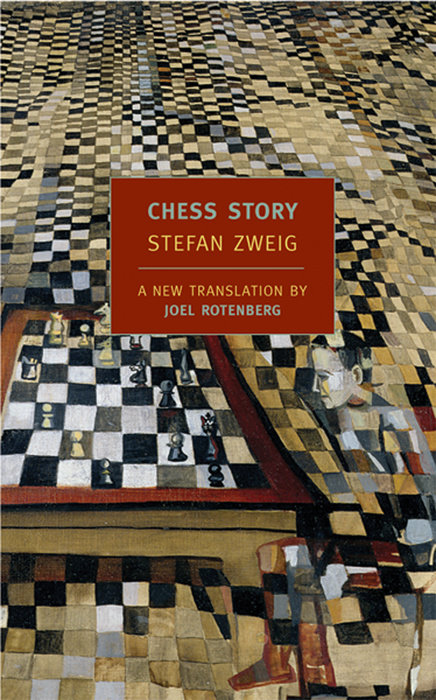
This is a short story which I believe was one of the last things Stefan Zweig wrote. (Update, it is the last thing he wrote.) And it was so interesting because it started out as just a story about a remarkable chess player prodigy, but one who could only play when he had a board in front of him. He can’t imagine or “see” a board in his mind to anticipate future moves. The “Shannon Number” is the number of possible moves in a game of chess and it is somewhere between 1o to the 111th factor and 10 to the 123rd factor. That’s more moves than there are atoms in the universe.
Now on some sort of cruise ship that the narrator (an observer of the story, like Tom in The Great Gatsby), notices an arrogant man that can’t believe this prodigy could win every game, so he starts betting and doubling down when he loses each time. On one of these games another observer butts in and says, “no don’t do that, you must do this,” and so on, and more or less explains the best he can hope for is a draw.
This man is Dr. B. and the narrator prods him to explain how he came about his extraordinary knowledge of the game. Dr. B., it turns out, is a holocaust survivor — having been isolated in Austria with absolutely no outside interaction. The only interaction he has is with a guard who brings the good. To prevent himself from going crazy, he swipes a book on chess with all the most famous games. He starts playing them, but unlike the prodigy on the ship, he “sees” these games in his head. He doesn’t need an actual board to play them. Finally, when he finds himself bored by having memorized all the games, he starts making up games in his head between himself and an alternate version of himself. This leads to more insanity, and once he is free, his doctors advise him never to play chess again.
The story is a very fine story I think, and it really captures the way the mind can trip itself up, especially when Dr. B. gets to the explanation of how he had to try to think with two personalities and try to pretend he did not know what the other was thinking. So a little story like this ends, which was originally titled, “The Royal Game,” ends up being another condemnation of the Nazis.
Stefan Zweig killed himself (his wife killed herself also) about 3 days after he sent this story off to his publisher. The story doesn’t really depict the despair he felt about Europe and the end of the Hapsburgs, but it doesn’t suggest he was struggling very hard with his mind when he was in Brazil.
